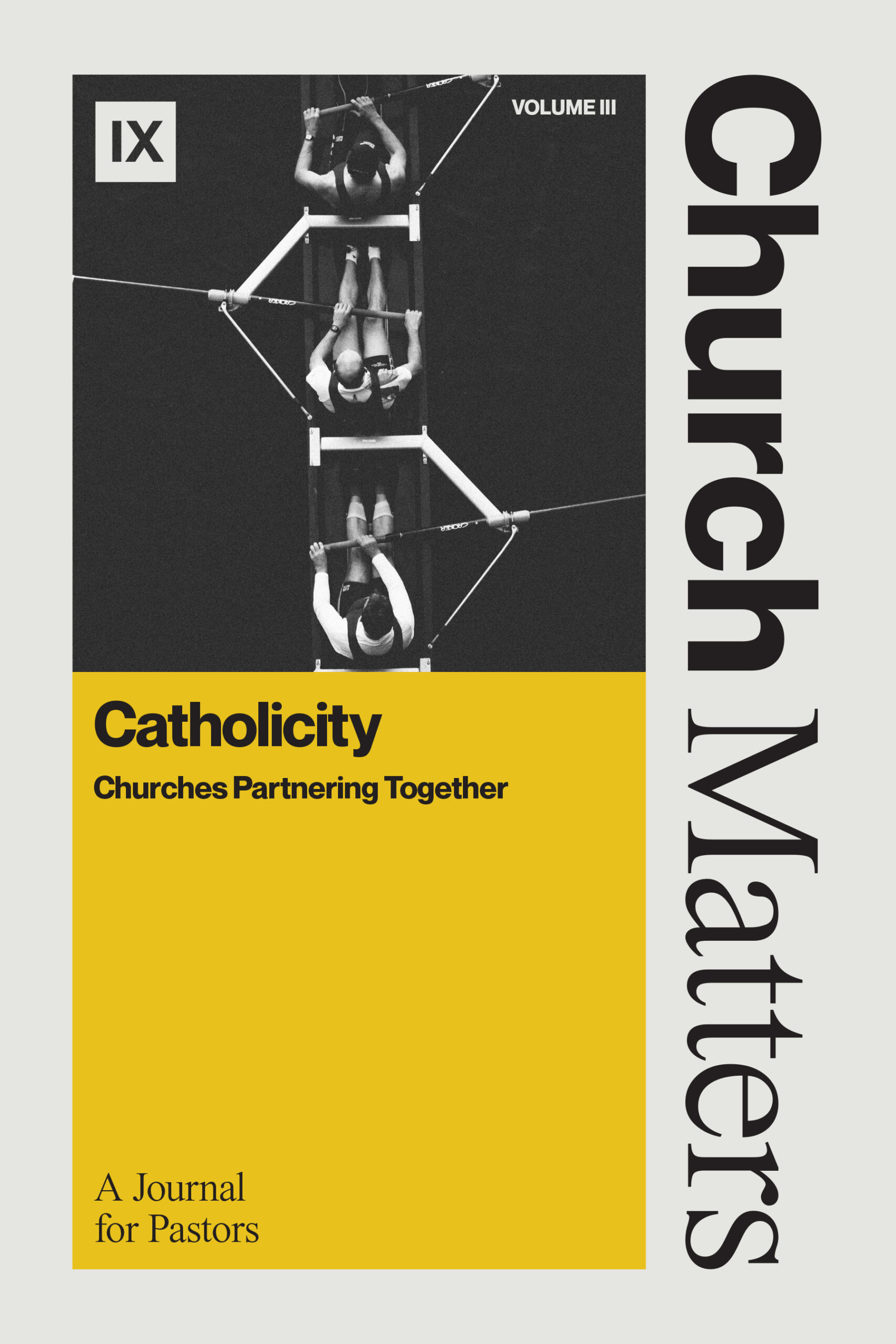Cooperating Under Persecution
“The blood of the martyrs is the seed of the church.”
I heard this statement often as a young Christian. It describes the miraculous way God sometimes causes his church to thrive and grow under the most adverse conditions. Looking back now, I realize I was excited by the statement more than I understood it.
When I moved to China as a 23-year-old, I wanted to see how the gospel could take root and thrive in a place where the government, education system, and culture were arrayed against it. Naively, I assumed a rather simple equation: gospel preaching + persecution = church growth.
The reality, of course, isn’t that simple. Research estimates the church in China grew six-fold from 1949–1979 under intense persecution.[1] Over the next thirty years of relaxing pressure, it grew even more.
It doesn’t seem like the work of the Spirit can be tied so closely to the amount of persecution. Furthermore, intense persecution often paralyzes cooperation between churches. In an environment of extreme risk, churches often opt for safety, which means trusting only the people in one’s own local church, since they are most clearly “in it together.” The result is a lack of catholicity or partnering with other churches. A further result is the weakening of churches since no one is cross-pollinating in helpful ways.
Over the past 25 years, I’ve had the opportunity to be a part of a growing cooperation of churches in China that faces lower-level persecution. By “lower-level” persecution, I mean that the authorities have, for practical and political reasons, relaxed their hold on churches in comparison to a previous era. Though “house churches”[2] are often still small, with 25 to 50 members on average, the potential exists in many places to grow into the 100–200 range. The church remains illegal, but varied levels of enforcement allow some churches to grow, to pay a pastor, and even to connect carefully with other churches domestically and further afield.
In that context, I want to consider some of the lessons we’ve learned about cooperation amidst persecution.
1. Persecution Forces Pastors to Realize They Need Other Pastors.
This isn’t because misery loves company, but because the pressing and practical needs of pastoring cry out for others to help share the load.
For example, smaller churches have smaller budgets and are typically either led by bi-vocational elders or a solo paid pastor. Elder teams (if they exist) might have two to four people. In our city, we’ve found that a monthly gathering to pray, fellowship, and discuss hard cases is a godsend to those serving without much help.
2. Persecution Forces Churches to Collaborate on Developing Younger Leaders.
Many churches in freer places can create training programs within their own church due to their size and resources. We started a city-wide internship that brings interns together for study and discussion but also disperses them to individual churches for practical ministry training. This has the added benefit of allowing churches to get to know young leaders they may want to call in the future.
3. Persecution Forces Churches to Face Their Own Mortality.
While a church in the West can reasonably assume it will exist in ten years, no church in China makes such assumptions. Most house churches are fragile enough that removing several key leaders or increasing government harassment will scatter a church.
The threat of short church lifespans does three things to a church. First, it creates an urgency to “work while it is day, for night is coming when no one can work” (John 9:4). Second, it pushes members to live inside the confidence that, while our individual church may cease, the church of the Lord Jesus Christ never will. Third, it pushes them to build relationships with other surrounding churches. Members may need to join them next year.
4. Persecution Forces Churches to Plant Churches.
In places where a church must meet in secret, the size of the meeting space is especially important since becoming too large can draw unwanted governmental attention. When a church grows from 50 to 100, the odds are significantly higher that it will be raided by the police and lose its meeting space, forcing it to split into two churches that meet in smaller spaces.
Our church has had to split the leadership and membership twice in order to accommodate growth and police pressure. In the short term, these were heart-wrenching decisions. Members felt like a family being torn apart.
In the long-term, we’ve watched a whole family of churches emerge. And each church knows it will have to form still other churches when the time is right. This mindset has fueled a natural and fervent cooperation between them all.
CONCLUSION
In the four subheadings above, I used the verb “forces” in order to clarify that churches typically don’t take these paths or enjoy these benefits until they have to. Who chooses persecution! Yet God often uses persecution as a means of causing his church to thrive under difficult circumstances, and this includes an increased emphasis on the importance of church cooperation.
While not all churches in China cooperate as they could, I have witnessed a strong and growing catholicity that churches in freer environments could learn from. Defining theological like-mindedness and pursuing cooperation is worth it. Being “fellow workers for the truth” is more than a survival skill; it’s a better and more biblical way to grow in health and fulfill the Great Commission.
* * * * *
[1] See Daniel Bays, A New History of Christianity in China.
[2] Many unregistered Chinese churches no longer meet in people’s homes, though the terminology remains widely used. When I speak of churches, I am not referring to the government sponsored “Three-Self Patriotic Movement” which I do not consider to be a true church.








